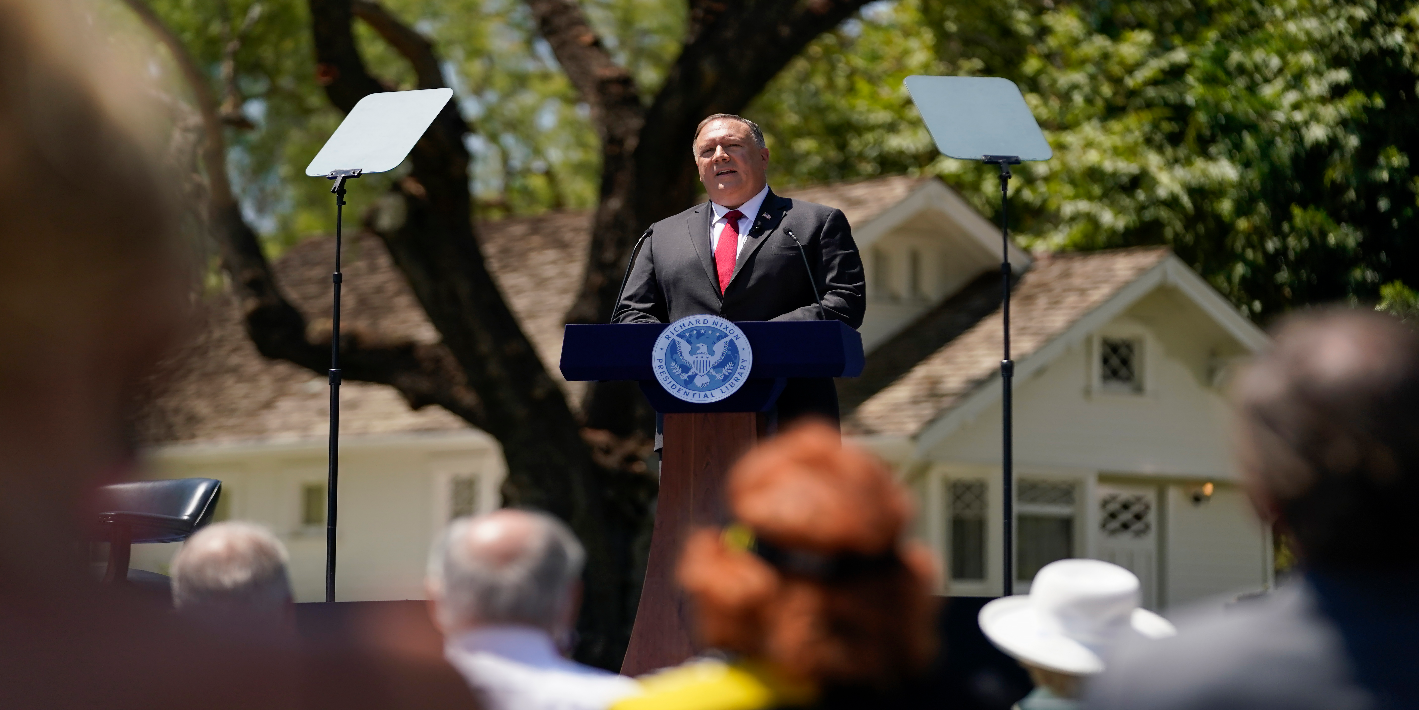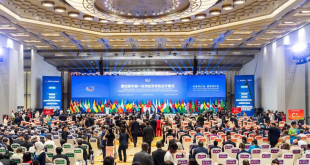Last year, in response to allegations of “misinformation” as protests waged in Hong Kong, as well as in anticipation of the upcoming elections in the United States, Twitter banned all advertising on its platform that’s related to politics and from what it deems “state backed entities.” It’s a move that was widely understood to be targeted at Chinese media.
Not surprisingly, the rules have not been equally enforced. This week, reports emerged from journalists based in the West African Nation of Senegal that they were receiving Twitter advertisements from the United States Embassy in France, which were pushing criticism of China. Despite not even being based in the country, the account accused Beijing of “violating the fishing rights” of the African country and breaking international law.
This is an astonishing revelation. Firstly, the U.S. State Department is openly funding anti-China propaganda designed to undermine its relationship with African countries, and secondly, Twitter is allowing multiple violations of its own rules by allowing a government-backed entity (the embassy) to sponsor politicized content of an obvious malign nature to target at another country.
How is this at all acceptable? Can one imagine the reaction if a Chinese embassy pursued such a strategy against a Western country, let alone one it wasn’t even based in? The clear double standards show how the media discourses of “misinformation,” “interference” and “propaganda” are wholly one-sided, and fail to give scope how the U.S. is, especially under State of Secretary Mike Pompeo, engaged in a broad propaganda campaign against China.
The timing of these ads, first of all, is suspicious. Senegal’s leader, Macky Sall, very recently voiced his opposition to criticism from Washington concerning China’s investment deals in Africa. Responding to comments from National Security Advisor Robert O’Brien, Sall stated: “Africans today know exactly what their priorities are. We don’t want our friends to see China’s intervention & China as a threat to the partnership we have with them.”
Despite that, African nations do not see China’s presence as unwelcome. But the United States is not taking no for an answer and rather than caring about what such countries have to say themselves, is now out to aggressively undercut China’s role in Africa out of geopolitical jealously

As a result, given Mike Pompeo’s endless attacks against China on social media every single day, it is no surprise that a U.S embassy has been caught sponsoring anti-China advertisements targeted at Senegal. Yet the overall response to this development is muted.
If a Chinese embassy had been caught doing the same thing, which is impossible owing to Twitter’s rules, it would have generated worldwide news coverage. There would be endless numbers of articles decrying “targeted Chinese misinformation,” “Wolf Warrior diplomacy” and “propaganda.” Op-eds would specifically accuse Beijing of interfering in Africa’s internal affairs and posing a threat to the entire continent. Yet, because a U.S. embassy is doing this instead, there is nothing.
This illustrates the clear double standards at play, both from the U.S, the mainstream media and Twitter itself as a platform, but in addition it also demonstrates the increasingly malicious nature of the State Department under the supervision of Mike Pompeo. Although the State Department will always advocate America’s narrative and role in the world, under his tenure it has devolved from a body which was otherwise diplomatic and dignified, into some sort of monstrous propaganda and smear campaign, which focuses on spreading misinformation and smear. It is obsessed with Beijing in a way which comes across as relentless and petty, as well as fanatical and paranoid.
Given this, the deliberate interference in the affairs of African countries by U.S. embassies has to be called out. China’s ties with Africa are strong, and America’s response is motivated not out of a concern for the continent itself, its wellbeing, development or prosperity, but a geopolitical disapproval of Beijing.
If there are concerns in the bilateral relations between China and any African country, then it is up to that country itself to understand and deal with them in context. American smear campaigns to disrupt China-Africa relations are being made in bad faith. They are deliberately misrepresenting situations and are solely attempting to manipulate public opinion against China. China ultimately remains the best hope for development countries on the continent should garnish. It’s crucial that Washington is not allowed to get in the way of that.
Cgtn.com
 Africa -China Review Africa -China Cooperation and Transformation
Africa -China Review Africa -China Cooperation and Transformation
